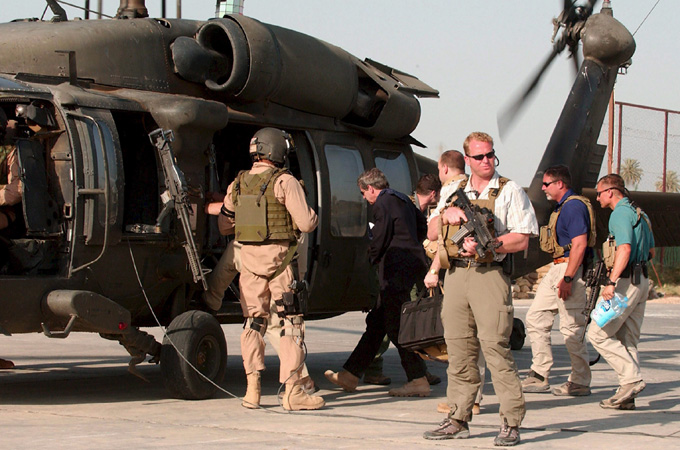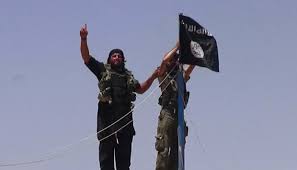By: James Marcus Bridger
Ever since Turkey became the first Muslim-majority country to recognize Israel in March 1949, relations between the two states have been marked by a high degree of economic, military, and humanitarian cooperation. What was once a seemingly natural alliance between two non-Arab “outsiders” in the Middle East has however recently devolved into a diplomatic crisis that threatens to remove yet another constant from the regional calculus.
The antecedent to the fallout was the May 31, 2010 Israeli naval raid on the ‘Gaza Freedom Flotilla.’ While five of the six ships were detained without violence, demonstrators aboard one vessel owned by a Turkish NGO, the MV Mavi Marmara, were fired upon after Israeli commandos allegedly encountered violent resistance. Nine activists were killed; eight Turkish citizens and one Turkish American.
Immediately after the incident, Ankara recalled its ambassador from Tel Aviv and demanded a UN inquiry into what it called “a grave breach of international law … tantamount to banditry and piracy.” This week the long delayed report, produced by a panel headed by Geoffrey Palmer, the former president of New Zealand, was leaked to the New York Times by an anonymous diplomat. The findings were not what the Turkish government had expected.
The Palmer Report concluded that the Israeli commandos’ actions were “excessive and unreasonable,” and that forensic evidence showed that “most of the deceased were shot multiple times, including in the back, or at close range.” However, it was also noted that the Mavi Marmara‘s passengers put up violent resistance, a charge Turkey adamantly denied. Furthermore, it was ruled that Israel’s blockade “complied with the requirements of international law,” and was “imposed as a legitimate security measure in order to prevent weapons from entering Gaza by sea.”
Though Tel Aviv accepted the report’s findings “with reservations,” the response from Ankara was one of pure outrage. Turkish President Abdullah Gul rejected the conclusions as ‘null and void.’ Prime Minister Recep Tayyip Erdogan lashed out similarly, calling Israel the “spoiled child” of the region. Fiery words were quickly followed by diplomatic action on Friday, September 2, when Turkey expelled the Israeli ambassador and downgraded bilateral relations to the lowest possible level.
While Israel expressed “regret” over the Mavi Marmara incident, Ankara demands both a formal apology and compensation for the victim’s families. Turkey is also determined that the Israeli embargo on Gaza must end before relations can fully be normalized. As Israel has refused to meet these conditions—insisting that its soldiers were acting “in self-defence” and that its blockade is vital to Israeli security—Turkey has promised to take further action.
Hinting initially at an increased naval presence, Erdogan declared that “our ships … will display themselves more often in [the eastern Mediterranean].” The Turkish Foreign Minister, Ahmet Davutoglu, similarly warned that Turkey would “take whatever measures it deems necessary in order to ensure the freedom of navigation.” Turkish intentions became clearer on September 8, when Erdogan declared that the country’s warships will now escort any Turkish aid vessels travelling to Gaza. He elaborated that Turkey “had taken steps to stop Israel unilaterally exploiting natural resources from the eastern Mediterranean.”
Though Erdogan initially stated that all relations would be suspended completely, it was later clarified that this referred only to military related trade and cooperation. This marks a stark shift in regional geopolitics, as for the last half-century Turkey has been the only Muslim country with which Israel has had a military partnership agreement. The relationship was notably beneficial for both sides; Tel Aviv was provided with open airspace in which to train its pilots and a lucrative market for its sophisticated defence industry. Israeli companies have supplied Ankara with surface-to-air missiles and have upgraded hundreds of Turkey’s US-made fighter jets and tanks. Tel Aviv had also been supplying Turkey with unmanned aerial vehicles, or drones, which the country had used for surveillance purposes in its ongoing war against Kurdish insurgents. However, this too has become a recent sticking point as Ankara accused Israel of not returning drones Turkey purchased and then sent in for maintenance.
In many ways, the flotilla incident was simply the straw that broke the camel’s back, as Turkish-Israeli relations had been steadily deteriorating for several years. Ankara has been increasingly critical of Israeli conduct in the Palestinian territories, loudly condemning the 2008 War in Gaza as “state terrorism.” For Turkey, Yigal Schleifer explains, the continued occupation “stands as the primary roadblock toward creating the kind of more harmonious regional order that Ankara envisions.” Seeking to break the deadlock of negotiations, Erdogan has stated that Turkey will lobby other states at the UN to support the Palestinian bid for statehood expected near the end of this month.
Israel, for its part, has been concerned about the new direction Turkish foreign relations are taking. The new policy of the Justice and Development Party (AKP), critically dubbed “Neo-Ottomanism,” has seen Turkey shift its diplomatic focus away from the West and towards states in the Middle East, Central Asia, and the Caucasus. The outreach has been fueled by Turkey’s economic dynamism and the increase in “soft power” that has accompanied it. While the surrounding states were once weary of their former Ottoman overlords, Erdogan’s readiness to publicly denounce Israel has made him something of a hero on the Arab street. Particularly worrying for the Jewish state has been Ankara’s recent diplomatic outreaches to Hamas, Iran, and (until a recent change of stance) Syria. Erdogan has raised the possibility that he will visit Gaza during an upcoming diplomatic tour of North Africa—making him the first statesmen to visit the Hamas-controlled enclave.
If a further deterioration of relations occurs, both parties, regional states, and the entire post-war alliance system have much to lose. Turkey risks alienating its traditional NATO allies, while Israel is in danger of becoming further isolated at the perilous moment when it must come to terms with the realities of the new Middle East. “The most tragic part of the breakdown,” Schleifer writes, “is that it comes at a time when closer cooperation and dialogue is exactly what the two countries need most.” There are a plethora of regional issues—gas exploration disputes off the coast of Cyprus, ongoing violence in Syria, and Iran’s nuclear program—in which Israeli-Turkish cooperation could be mutually beneficial.
As they are both American regional allies, there has been strong pressure from the U.S for the two states to resolve their dispute. Turkey’s membership in NATO, it is also hoped, will prevent the feud from becoming an open conflict. However, as recent events have taught observers, nothing in today’s Middle East is constant or predictable. The shore of the eastern Mediterranean is now one more hotspot for the world to watch.
Further Readings: Erdogan: Turkish navy to protect Gaza aid, Dead in the Water, Amid Tensions With Israel, Turkey Threatens Increased Naval Presence, Turkish PM announces additional sanctions on Israel, Turkey suspends military ties with Israel
Disclaimer: Any views or opinions expressed in this article are solely those of the author and do not necessarily represent those of the NATO Council of Canada.



